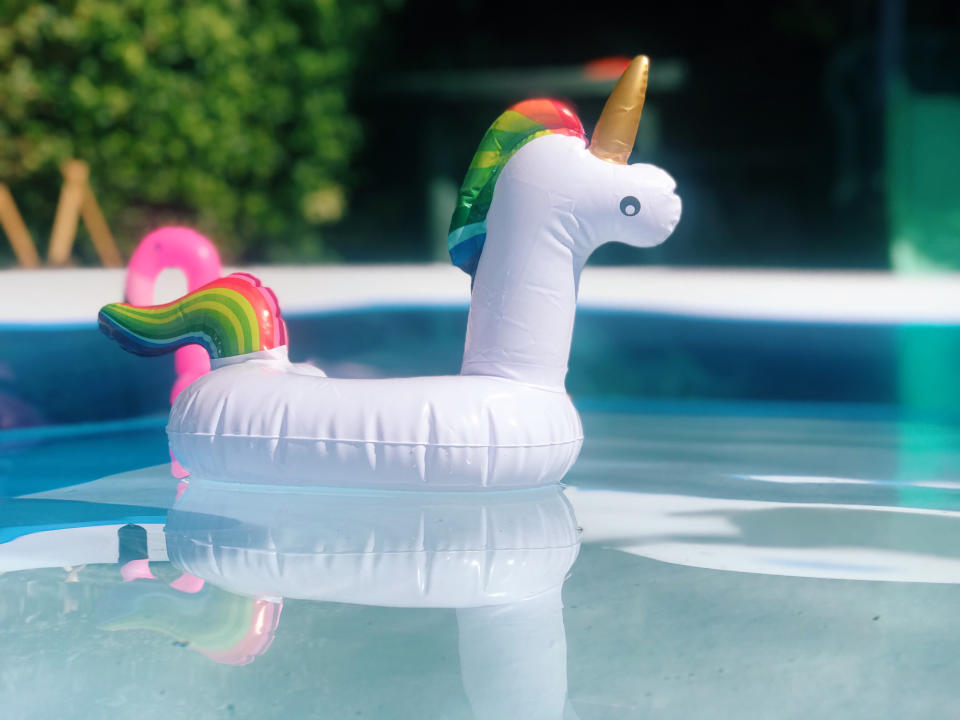Why you don't want to be a billion-dollar business

In the early days of Finder, people told Frank Restuccia and I that our business would never be a unicorn. That our little Australian startup would never reach the $1 billion unicorn status. This never bothered us because we weren’t planning to build a unicorn. And startups shouldn’t aim to either.
Related story: How $193 million CEO bounced back when Google wiped out his business
Related story: Exclusive: Finder.com.au co-founder flags IPO
Related story: Finder co-founder Fred Schebesta has debuted on the Young Rich List with a $193 million fortune
Unicorns come and go. But businesses that are built slowly and sustainably, without funding, I believe are more likely to last.
For the past decade, everyone wanted to be the next unicorn. These were startups that hit celebrity status for making it into the Billion Dollar Club. But the problem is, huge injections of funding often come with inflated valuations. And if you’re not making money, it will sink just as fast.
I have seen too many startups that chase the unicorn by fudging their financials, hyping up their value and focusing on their next round of investment.
They grow too fast and break their culture. And they lose focus on building a sustainable business model because they’re too busy chasing that mythical creature in the sky.
The early years of a startup are the most crucial. It’s make or break time when every minute counts towards getting this baby off the ground. Startups should be focusing on making their first dollar. And then their next dollar. And re-investing these dollars back into the business.
By doing this, your startup will learn to be super lean, because every dollar matters. If you get a big cash injection, you’re more likely to lose the frugality you once had, and a dollar won’t be as important.
When we started Finder we did everything we could to keep costs down and invested everything back into the business. Frank and I spent our days coding the website, writing guides, meeting with clients, chasing up invoices and networking. We didn’t pay ourselves for two years.
We walked everywhere instead of taking a taxi. We took doggy bags of food from events ...and may or may not have borrowed a roll or two of toilet paper. We spent time building the business, analysing our data and testing. We would never have gotten off the ground if we spent that time pitching to investors and reporting to them.
Related story: ClassPass, finally a unicorn, raises $285 million in new funding
Related story: Unicorns have to live in the now, not the starry future
Related story: The year tech unicorns became donkeys
With no funding, you’re forced to focus on building an incredible product or service, where every part of your business matters, every customer and their feedback is crucial. You’re strategising how your business develops into the future and how it differs from your competitors. Your survival instincts kick in and you will live and breathe your startup.
It’s much harder to do this with millions of dollars and investor pressure hanging over you.
Most importantly, being self-funded gives you the freedom and flexibility to pivot, test out new ideas and experiment. These areas need long-term strategies that won’t pay off straight away, which VCs and investors don’t often like.
Frank and I always get asked why we didn’t get funding. It was a tough ride, we sacrificed a lot. But it was worth it. We had many bumps along the way but it taught us a number of things. We learnt how to execute on every part of our business, to embrace mistakes and the importance of building a company that lasts.
From a little Aussie startup in a super competitive market, Finder now operates in 83 countries and was recently valued at almost $250 million. We’re about to shake things up again by launching the Finder App. It’s an Australian-first that will connect your bank accounts and automatically compare products for you. Join the wait list here.
Finder is a key example of why you don’t need to be a unicorn. There are other great examples that also bootstrapped their way to success including Atlassian, Mail Chimp, Shopify, ShutterStock, even Microsoft and eBay started without funding.
The golden age of the unicorn is over, according to Yahoo Finance US Editor-in-Chief Andy Serwer. Build something remarkable that you can be proud of, and grow slow, and you’re far more likely to succeed.
Fred Schebesta is co-founder of Finder, Australia’s most visited financial comparison website, and the Finder App launching in February 2020. Join the wait list here.
Make your money work with Yahoo Finance’s daily newsletter. Sign up here and stay on top of the latest money, news and tech news.

 Yahoo Finance
Yahoo Finance 